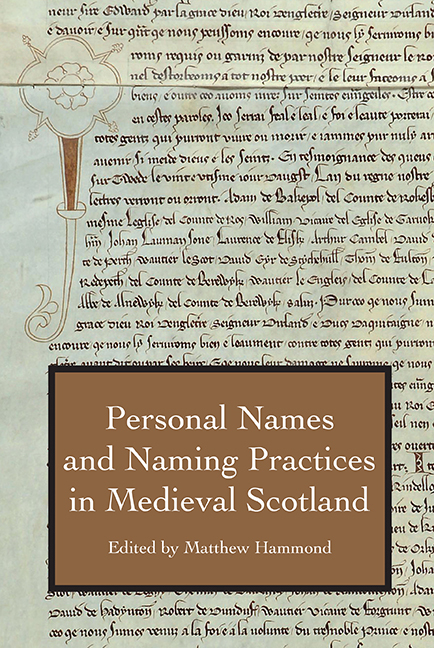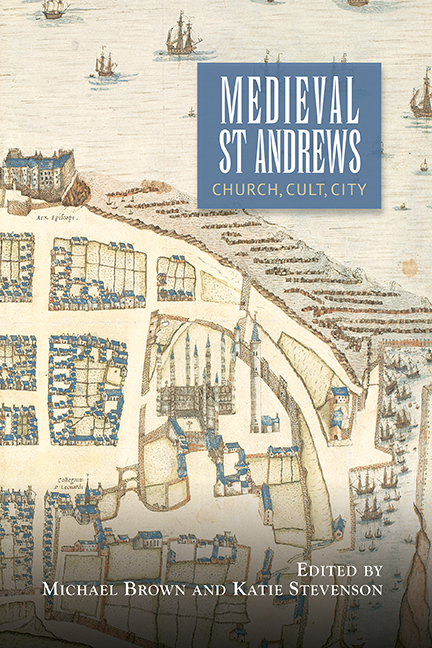85 results
Chapter 32 - General Anaesthesia and Failed Intubation
- from Section 6 - Anaesthetic Emergencies During Pregnancy
-
-
- Book:
- Obstetric and Intrapartum Emergencies
- Published online:
- 06 May 2021
- Print publication:
- 03 June 2021, pp 231-238
-
- Chapter
- Export citation
Recall of government healthy eating campaigns by consumers in five countries
-
- Journal:
- Public Health Nutrition / Volume 24 / Issue 13 / September 2021
- Published online by Cambridge University Press:
- 12 April 2021, pp. 3986-4000
-
- Article
-
- You have access
- HTML
- Export citation
Clinical Neuropathological Conference: There’s a Child in All of Us
-
- Journal:
- Canadian Journal of Neurological Sciences / Volume 48 / Issue 6 / November 2021
- Published online by Cambridge University Press:
- 09 February 2021, pp. 869-873
-
- Article
-
- You have access
- HTML
- Export citation
List of Contributors
-
- Book:
- Personal Names and Naming Practices in Medieval and Early Modern Scotland
- Published by:
- Boydell & Brewer
- Published online:
- 18 September 2019
- Print publication:
- 21 September 2019, pp xi-xii
-
- Chapter
- Export citation
Note on the Text
-
- Book:
- Personal Names and Naming Practices in Medieval and Early Modern Scotland
- Published by:
- Boydell & Brewer
- Published online:
- 18 September 2019
- Print publication:
- 21 September 2019, pp xix-xx
-
- Chapter
- Export citation
Dedication
-
- Book:
- Personal Names and Naming Practices in Medieval and Early Modern Scotland
- Published by:
- Boydell & Brewer
- Published online:
- 18 September 2019
- Print publication:
- 21 September 2019, pp v-vi
-
- Chapter
- Export citation
Studies in Celtic History
-
- Book:
- Personal Names and Naming Practices in Medieval and Early Modern Scotland
- Published by:
- Boydell & Brewer
- Published online:
- 18 September 2019
- Print publication:
- 21 September 2019, pp 291-293
-
- Chapter
- Export citation
Frontmatter
-
- Book:
- Personal Names and Naming Practices in Medieval and Early Modern Scotland
- Published by:
- Boydell & Brewer
- Published online:
- 18 September 2019
- Print publication:
- 21 September 2019, pp i-iv
-
- Chapter
- Export citation
7 - The Romance of Names: Literary Personal Names in Twelfth- and Thirteenth-Century Scotland
-
-
- Book:
- Personal Names and Naming Practices in Medieval and Early Modern Scotland
- Published by:
- Boydell & Brewer
- Published online:
- 18 September 2019
- Print publication:
- 21 September 2019, pp 166-186
-
- Chapter
- Export citation
Acknowledgements
-
- Book:
- Personal Names and Naming Practices in Medieval and Early Modern Scotland
- Published by:
- Boydell & Brewer
- Published online:
- 18 September 2019
- Print publication:
- 21 September 2019, pp x-x
-
- Chapter
- Export citation
List of Tables
-
- Book:
- Personal Names and Naming Practices in Medieval and Early Modern Scotland
- Published by:
- Boydell & Brewer
- Published online:
- 18 September 2019
- Print publication:
- 21 September 2019, pp ix-ix
-
- Chapter
- Export citation
1 - Introduction: The Study of Personal Names in Medieval Scotland
-
-
- Book:
- Personal Names and Naming Practices in Medieval and Early Modern Scotland
- Published by:
- Boydell & Brewer
- Published online:
- 18 September 2019
- Print publication:
- 21 September 2019, pp 1-17
-
- Chapter
- Export citation
Abbreviations
-
- Book:
- Personal Names and Naming Practices in Medieval and Early Modern Scotland
- Published by:
- Boydell & Brewer
- Published online:
- 18 September 2019
- Print publication:
- 21 September 2019, pp xiii-xviii
-
- Chapter
- Export citation
Bibliography
-
- Book:
- Personal Names and Naming Practices in Medieval and Early Modern Scotland
- Published by:
- Boydell & Brewer
- Published online:
- 18 September 2019
- Print publication:
- 21 September 2019, pp 245-268
-
- Chapter
- Export citation
4 - The Development of Mac Surnames in the Gaelic World
-
-
- Book:
- Personal Names and Naming Practices in Medieval and Early Modern Scotland
- Published by:
- Boydell & Brewer
- Published online:
- 18 September 2019
- Print publication:
- 21 September 2019, pp 100-143
-
- Chapter
- Export citation
Index
-
- Book:
- Personal Names and Naming Practices in Medieval and Early Modern Scotland
- Published by:
- Boydell & Brewer
- Published online:
- 18 September 2019
- Print publication:
- 21 September 2019, pp 269-290
-
- Chapter
- Export citation
Contents
-
- Book:
- Personal Names and Naming Practices in Medieval and Early Modern Scotland
- Published by:
- Boydell & Brewer
- Published online:
- 18 September 2019
- Print publication:
- 21 September 2019, pp vii-viii
-
- Chapter
- Export citation

Personal Names and Naming Practices in Medieval and Early Modern Scotland
-
- Published by:
- Boydell & Brewer
- Published online:
- 18 September 2019
- Print publication:
- 21 September 2019
Contents
-
- Book:
- Medieval St Andrews
- Published by:
- Boydell & Brewer
- Published online:
- 28 April 2017
- Print publication:
- 17 February 2017, pp vii-viii
-
- Chapter
- Export citation

Medieval St Andrews
- Church, Cult, City
-
- Published by:
- Boydell & Brewer
- Published online:
- 28 April 2017
- Print publication:
- 17 February 2017



